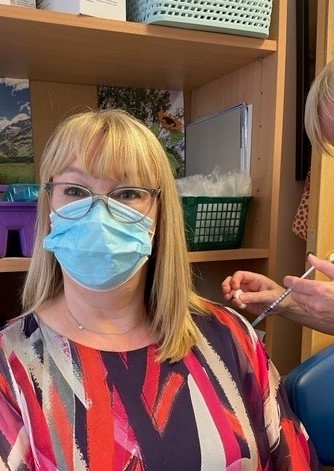The Clinically Vulnerable and Vaccines
It may be 14 years since I was diagnosed with pancreatic cancer and, although I am not going through any immune busting treatment, I am still classed as ‘extremely clinically vulnerable’, as my surgery to remove my tumour included the removal of my spleen. So why does the removal of my spleen make me more vulnerable?

Well, one of the spleen’s main jobs is to filter your blood. It affects the number of red blood cells that carry oxygen throughout your body, and the number of platelets, which are cells that help your blood to clot. It does this by breaking down and removing cells that are abnormal, old, or damaged.
The spleen also stores red blood cells, platelets, and infection-fighting white blood cells.
The spleen plays an important role in your immune system response. When it detects bacteria, viruses, or other germs in your blood, it produces white blood cells, called lymphocytes, to fight off these infections.
It’s an important organ, but not essential. If it’s damaged by disease or injury, it can be removed without threatening your life. The surgery to remove your spleen is called a splenectomy. In my case, the surgery I had was a distal pancreatectomy & splenectomy.
Here’s some information on what that entails: Distal pancreatectomy & splenectomy · Pancreatic Cancer Action
If your spleen is removed, your lymph nodes and liver can take over many of the spleen’s important functions. Yet without a spleen, you will be more likely to get certain infections. And if you do get ill, it can take longer than usual for you to recover.
While the liver & lymph nodes can take over many of the spleen’s functions, it is important that those of us without a spleen have regular vaccinations to prevent serious illness.
These include:
- pneumococcal infections, such as pneumonia, with a booster every 5 years
- flu (get the flu vaccine every year)
- MenACWY (prevents meningitis and septicaemia)
- MenB (prevents meningococcal group B bacteria)
Now, of course, COVID-19 is a threat to us non-spleen people. We stand a greater chance of being hospitalised and even dying after contracting COVID-19 than others in our society.
Which is why I spent the majority of 2020 shielding – not going to public places such as supermarkets, avoiding public transport (which was easy as I wasn’t going anywhere) and ensuring contact with anyone was minimal. In parts, it was a scary time, particularly towards the end of 2020 when other people started relaxing and not following the rules.
Then, the vaccines came in and I could not wait to get mine. But I had to wait until the end of January 2021 to have my first dose and my second came in April. I have to say, there was a slight feeling of liberation for me. I found I was able to go to the supermarket again and to other places but still avoided crowded places even after the rules were relaxed this summer.
Personally, I am disappointed that the English government has not kept face coverings mandatory. I still continue to wear my mask, even in the knowledge that I am probably protecting others more than myself, but I am increasingly frustrated at what seems to be the majority of people who have abandoned mask-wearing altogether – who are putting clinically vulnerable people like me at risk.
I was also getting a bit twitchy at the prospect that six months after my last vaccine dose, my immunity against COVID-19 may be waning, so I have been waiting for my call up for my third dose. This happened on Wednesday 10th November and I skipped into the vaccine centre, so excited that the day had arrived.
We now know that the overwhelming majority of people who end up being hospitalised by COVID-19 are unvaccinated and these people unfortunately are more likely to die from the disease too
If you haven’t already, I would urge you to get your COVID-19 vaccines and for those of us eligible to receive boosters and the flu jab, then I would urge you to get those too.